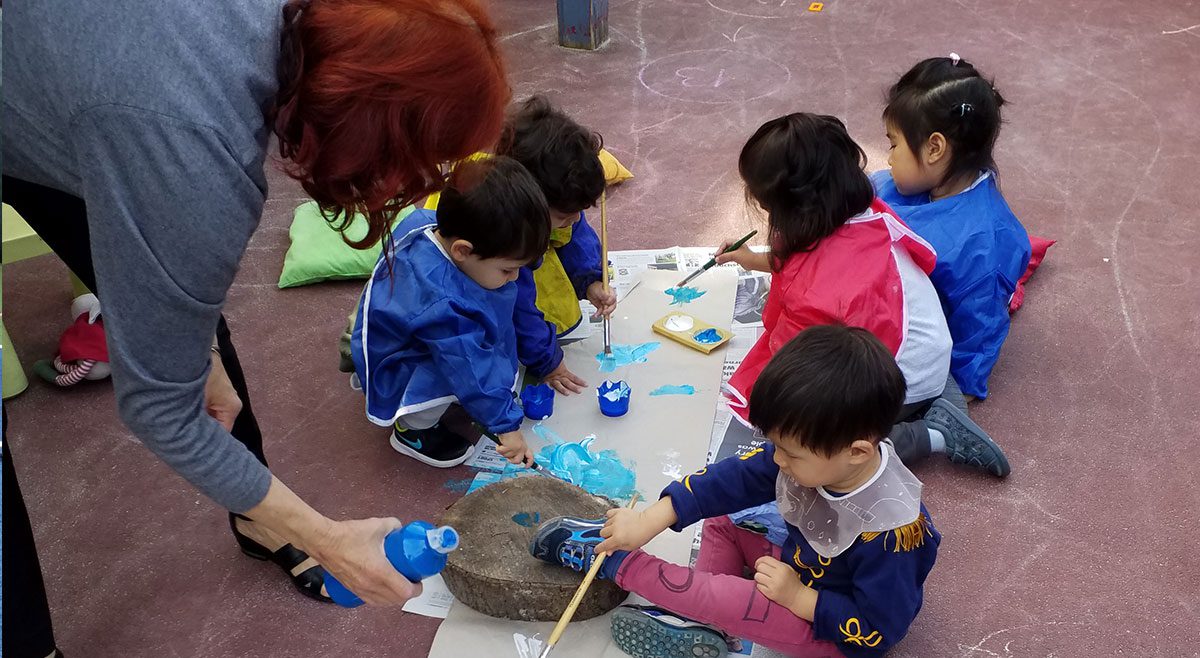Role play is a vital part of child development, allowing children to experiment with different identity scenarios and learn about social interactions. Through role play, children can gain a better understanding of themselves and the world around them. They can explore different emotions and learn how to express themselves in a safe and supported environment.
Additionally, role play can help children to develop important life skills such as cooperation, communication, and problem-solving. Also, role play can teach children how to resolve conflicts, manage emotions, and feel empathy for others, as well as giving children a chance to practice taking on different roles and perspective-taking. By engaging in role-play, children can learn how to navigate the complexities of social interactions and build positive relationships with their peers. Ultimately, role play is an essential tool for child development that helps children to grow and thrive.
Recently, at our Wimbledon Nursery, our 2–3-year-olds have been pretending there’s a river running through our playground. This idea came about by teachers observing and engaging with children and responding to their interests. Gauging by the fun had by all we sometimes think the Wimbledon nursery teachers enjoy role play more than the children!
The children discussed how they could use different materials to create a river. With the help of their teachers, the children co-operated to gather leaves, sticks, and stones to create a miniature river. They were then able to play together, using their imaginations to fish, swim, and build a bridge.
It was lovely to see the children working together so collaboratively. They were really engaged in the task, and it was great to see them all using their imaginations and problem-solving skills. It was also great to see them encouraging and supporting each other throughout the process. Well done, everyone!
This activity not only allowed the children to have fun and be creative but also helped them to develop important cognitive and social skills.



